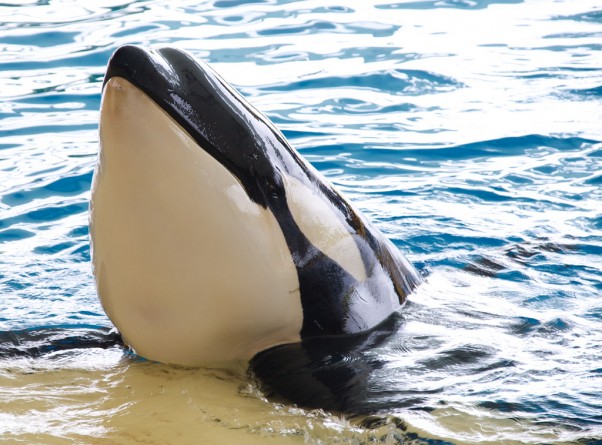
Americans' attitudes about orcas have changed dramatically. When the first SeaWorld Park opened in 1964, orcas, or killer whales, were not universally loved, to put it mildly. Instead, they were feared, hated and even hunted. Half a century later, orcas are among the most popular marine mammals on the planet. One reason: People came to SeaWorld and learned about orcas up close.
For some time, SeaWorld has faced a paradox. Customers visit our marine parks, in part, to watch orcas. But a growing number of people don't think orcas belong in human care. Lawmakers in Sacramento and even in the U.S. House of Representatives have proposed legislation to phase out orca captivity. Even the California Coastal Commission — a state agency with oversight over land use and public access — moved last year to ban orca breeding at SeaWorld San Diego.
We are proud of contributing to the evolving understanding of one of the world's largest marine mammals. Now we need to respond to the attitudinal change that we helped to create — which is why SeaWorld is announcing several historic changes. This year we will end all orca breeding programs — and because SeaWorld hasn't collected an orca from the wild in almost four decades, this will be the last generation of orcas in SeaWorld's care. We are also phasing out our theatrical orca whale shows.
Some critics want us to go even further; they want us to “set free” the orcas currently in our care. But that's not a wise option.
Most of our orcas were born at SeaWorld, and those that were born in the wild have been in our parks for the majority of their lives. If we release them into the ocean, they will likely die. In fact, no orca or dolphin born under human care has ever survived release into the wild. Even the attempt to return the whale from “Free Willy,” Keiko, who was born in the wild, was a failure.
For as long as they live, the orcas at SeaWorld will stay in our parks. They'll continue to receive the highest-quality care, based on the latest advances in marine veterinary medicine, science and zoological best practices.
These decisions — and the debates that preceded them — are about more than these orcas. Bigger questions are at stake than whether any animals anywhere should remain under human care.
Americans and thoughtful people everywhere need to acknowledge these fundamental problems: More than 3,000 species are endangered, and hundreds are lost every year. Some scientists predict that, within a century, 50% of large mammals will be extinct.
Wild animals and wild places will continue to disappear — biologists call this “the sixth extinction,” comparable to previous cataclysms such as the ice age — unless humans awaken and take action.
In this impending crisis, the real enemies of wildlife are poaching, pollution, unsustainable human development and man-made disasters such as oil spills — not zoos and aquariums.
Governments cannot address this crisis alone. We need concerned individuals to take action, as well as nongovernmental organizations. And, yes, the private sector also has to join in addressing this problem.
SeaWorld takes seriously its responsibility to preserve marine wildlife. That's why we are partnering with the Humane Society of the United States, the nation's largest and most effective animal protection and advocacy organization. Together, we will work against commercial whaling and seal hunts, shark finning and ocean pollution.
The Humane Society recognizes the critical work SeaWorld performs as one of the largest rescue organizations in the world. SeaWorld will increase its focus on rescue operations — so that the thousands of stranded marine mammals like dolphins and sea lions that cannot be released back to the wild will have a place to go.
SeaWorld will also join in the Humane Society's efforts to raise awareness of animal welfare, offering humane food options and serving only sustainable seafood.
Without a critical mass of informed and energized people, humanity will never make the difficult decisions that are necessary to halt and reverse the exploitation of wild places and the extinction of wild species.
By offering our guests enjoyable, memorable and educational experiences, SeaWorld will continue to create the constituency for conservation, just as we helped to inspire the changing attitudes that, in turn, inspired our company's changing policies.
Source:latimes.com
Photo: flickr.com

